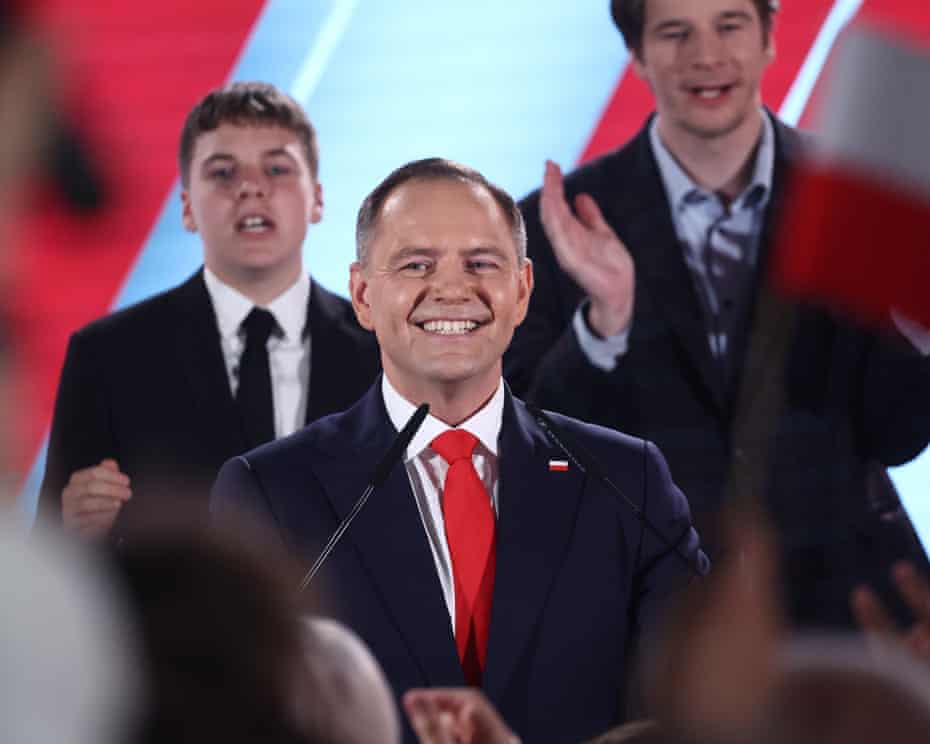In a razor-thin victory, right-wing candidate Karol Nawrocki clinched Poland’s presidential runoff election, official results revealed early Monday. Securing 50.89% of the vote, Nawrocki edged out liberal rival Rafal Trzaskowski, the progressive mayor of Warsaw and close ally of Prime Minister Donald Tusk, who garnered 49.11%.
Nawrocki’s candidacy was backed by the nationalist Law and Justice (PiS) party, which governed Poland until Tusk’s coalition triumphed in the 2023 parliamentary elections. His presidential win poses a significant challenge to Tusk’s reform ambitions, as the president holds veto power that could block government initiatives until the next parliamentary election in 2027.
The outcome stunned many after exit polls suggested Trzaskowski had a narrow lead of 0.6%. Jubilant, Trzaskowski prematurely declared victory Sunday night, calling it a “special moment in Poland’s history.” Meanwhile, Nawrocki remained defiant, telling his supporters, “We must win tonight… and save Poland.”
The campaign was intensely polarized, with each candidate offering a starkly different vision for the nation. Trzaskowski advocated for progressive reforms, including liberalizing abortion laws and introducing civil partnerships for LGBT couples. Nawrocki, a conservative historian and former boxer, has vowed to veto such policies, aligning with PiS’s socially traditionalist stance.
Nawrocki succeeds outgoing president Andrzej Duda, another PiS ally, whose term ends in August. Although the Polish presidency is largely ceremonial, it plays a vital role in foreign policy and defense, and crucially, can veto legislation. Tusk’s coalition lacks the 60% parliamentary supermajority needed to override vetoes.
Political analysts suggest Nawrocki’s win will embolden PiS and extend the legislative stalemate. “If Nawrocki wins, Tusk has a lame-duck administration for the next couple of years,” noted Prof. Aleks Szczerbiak, a political expert from the University of Sussex. PiS figures have hinted at plans to fracture Tusk’s broad coalition and reclaim legislative power.
Nawrocki, previously head of the Institute of National Remembrance, a state-backed historical body criticized for political bias, faced media scrutiny over alleged past misconduct during the campaign. Nonetheless, he succeeded in energizing the conservative base and reaching out to voters of eliminated first-round candidates.
Trzaskowski, Oxford-educated and mayor of Warsaw since 2018, presented himself as a competent partner for reform. But his campaign faced accusations of elitism and controversy over foreign-sponsored digital ads.
As both candidates emphasized the importance of every vote in the final stretch, Sunday’s high-stakes runoff saw strong voter engagement, echoing the high turnout in 2023’s parliamentary elections that delivered Tusk’s coalition victory. However, Nawrocki’s win signals a prolonged political standoff and an uncertain road ahead for reform in Poland.



